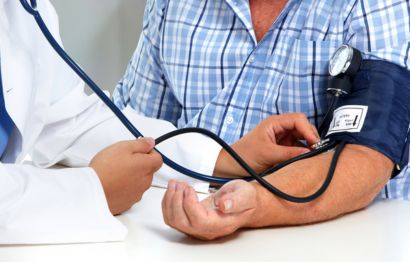Cardiovascular Disease: Maintaining a Healthy Weight
Achieving a healthy weight is important for the maintenance of good health in general, and cardiovascular health in particular. Being overweight is a risk factor for the development of heart disease.

Physical activity
Regular exercise is one of the best things you can do for your heart. 30 minutes of moderate intensity activity on five or more days of the week, can halve your chance of developing heart disease.
If you have a busy schedule, break up the recommended 30 minutes into several shorter sessions – it’s the total time per day that you exercise that counts.
In addition to its effect on your heart and circulation, exercise can also:
- Help you improve your balance of ‘good cholesterol’ (high-density lipoprotein HDL) and ‘bad cholesterol’ (low-density lipoprotein LDL)
- Help you to sleep better
- Provide you with a feeling of well-being
- Strengthen your bones
What is meant by moderate activity?
Moderate activity should make you feel warm and slightly out of breath but you can still talk. This type of activity encourages your heart to become stronger, enabling it to pump more blood around your body with less effort.
Ambulatory Blood Pressure Monitoring
Ambulatory blood pressure monitoring (ABPM) tracks and monitors your blood pressure at regular intervals over 24 hours. Blood pressure (BP) is used to measure the amount of work that the heart has to do in order to pump blood around your body.
Read more
What age is it good to start exercising?
You can benefit from physical activity at any age. You should talk to your GP before starting an exercise programme so as to agree an appropriate plan that is suitable to your health.
Build up your activity levels gradually. Most of all find an activity which you can do safely and still enjoy! Try to build activity into your daily routine so it does not become a chore – walking, cycling, dancing, swimming or going to the gym. Your activity doesn’t have to be a sport – try gardening, taking the stairs instead of the lift, walk instead of driving or taking the bus.
Your doctor/nurse will advise you prior to starting out on an exercise programme, what combination might suit you best.
Remember the key is to build up how often you do the activity (the frequency) before you increase how hard you work during a session (the intensity).
Goals to Reduce Your Risk of Heart Disease (pdf) | 783KB






.jpg?sfvrsn=bc97231b_1)




.jpg?sfvrsn=5a81ae69_1)
